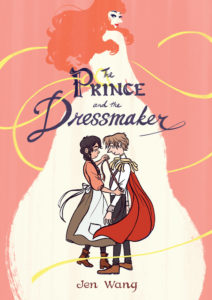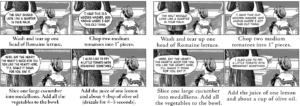Fleen Book Corner: Is This Guy For Real?
The fine folks at :01 Books sent me a copy of Is This Guy For Real? by Box Brown, and now I’m gonna talk about it. This is normally where I’d say that the review will contain spoilers, but I think that Brown’s work is uniquely immune that that concern; kinda of hard to have spoilers in what’s fundamentally a work of non-fiction.
At least, as much of a work of non-fiction as you can get where Andy Kaufman is concerned; that guy made it his life’s work to blur the line between fiction and reality with his every breath. The fact that people are still arguing over whether or not he faked his death more than thirty years ago shows the degree to which he messed with all of our heads.
ITGFR? will be immediately familiar to anybody that’s read Brown’s last couple of books; like Mr The Giant or Tetris, Kaufman is one of those cultural referents that everybody seems to know, but few know where they came from. The books feel less like formal biographies (if a video game can be said to have a biography) and more like oral histories, particularly this latest; there are many talking head inserts in ITGFR? from people who knew and worked with Kaufman, and their reminiscences make the notorious opaque Kaufman come alive.
This is especially true when you consider that the book is almost two parallel biographies — Kaufman’s public nemesis/real life friend, wrestler Jerry “The King” Lawler gets nearly as much attention as Kaufman does. It’s an effective treatment; instead of just covering Lawler in the context of his famed (and prolonged) wrestling feud with Kaufman (culminating in a famous, staged around-smacking on Late Night With David Letterman&sp1;), it follows his own pursuit of fame (which, like Kaufman, he was determined to achieve on his own terms).
Brown’s trademark chunky style serves the story well; it’s not particularly realistic to look at, which heightens the unreality of Kaufman’s life. As near as I can tell, every milestone of Kaufman’s career, and all of his major stunts² are included, making this perhaps the most complete look at what Andy Kaufman was like.
Is This Guy For Real? The Unbelievable Andy Kaufman releases on Tuesday, 6 February, at bookstores everywhere. Box Brown will tour in support of the book starting the following day and visiting eight cities in eight states over ten days.
Spam of the day:
Dear Partner..
Really? A 419 scam actually claiming to be from Nigeria? That’s old school right there.
_______________
¹ I’ve long thought that Brown’s love of wrestling meant he was destined to write a graphic novel series that would serve as a definitive history of professional wrestling, but in going back to watch Kaufman’s Letterman appearances, I think that Dave might be a better topic. That clip of Kaufman is a perfect example of why; it was in the first year of Dave’s late night run, it feels small and improvised and weird (with an audible audience that seems to have accidentally wandered in from a public-access cable show), offbeat in the way that Brown’s best subjects are.
I’d love to see Brown take a whack at Letterman’s journey, but maybe that’s just because I remember how brilliant he was from the get-go. I remember watching his daytime show on its too-brief run, I remember the weird things he did in late night when I was in college (a rerun might be dubbed into Spanish, or the broadcast might rotate through 360° over the course of the hour), I remember watching Larry “Bud” Melman at the Port Authority and Crispin Glover’s meltdown (and the following show’s cold open) the nights they happened. The larger-than-life weirdos that could be included would make for a cracking read.
² One possible exception; I seem to remember an interview with Kaufman where he revealed that he regularly left filming of Taxi and went to his second job, bussing tables at a Hollywood cafeteria. Not sure if my recall is accurate, though.







